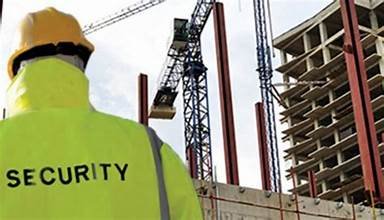Introduction
Construction sites are dynamic environments where valuable assets, equipment, and materials are present. However, they are also susceptible to theft, vandalism, and unauthorized access. Construction site security plays a vital role in safeguarding these sites, ensuring the safety of workers, protecting assets, and preventing costly delays. In this article, we will delve into the importance of construction site security and explore key measures that can be implemented to create a secure and protected construction site.
Key Components of Construction Site Security
To establish comprehensive construction site security, several key components should be considered and implemented:
1. Perimeter Security
Securing the perimeter of the construction site is crucial to prevent unauthorized access. This can be achieved through the installation of sturdy fencing, gates, and signage. Clear boundaries and restricted access points help control who enters the site, reducing the risk of theft or vandalism.
2. Access Control Systems
Implementing access control systems allows for better control over who enters the construction site. This can include measures such as key cards, biometric identification, or security personnel stationed at entry points. By restricting access to authorized personnel only, the risk of theft or unauthorized entry is significantly reduced.
3. Surveillance Systems
Surveillance systems, such as closed-circuit television (CCTV) cameras, are essential for monitoring activities within the construction site. Strategically placed cameras can deter potential criminals and provide valuable evidence in the event of an incident. Regular monitoring of the surveillance footage can help identify and address security vulnerabilities.
4. Lighting
Proper lighting is crucial for construction site security. Well-lit areas deter potential intruders and enhance visibility for workers during nighttime operations. Adequate lighting also helps identify potential hazards and reduces the risk of accidents.
5. Security Personnel
Having trained security personnel on-site can significantly enhance construction site security. Security guards can monitor access points, patrol the site, and respond promptly to any security concerns. Their presence alone can act as a deterrent to potential criminals.
6. Equipment and Material Management
Implementing effective equipment and material management protocols is essential for construction site security. This includes proper inventory control, secure storage, and tracking systems for equipment and materials. Regular checks and documentation of equipment and materials help identify any discrepancies and prevent theft or loss.
7. Communication and Emergency Response
Establishing clear communication channels and emergency response protocols is crucial for construction site security. This includes providing workers with means to report security concerns, maintaining effective communication with security personnel, and having well-defined procedures for emergency situations.
Benefits of Construction Site Security
Implementing robust construction site security measures offers several benefits:
- Protection of Assets: Construction sites house valuable assets, equipment, and materials. By implementing security measures, these assets are protected from theft, damage, or unauthorized use, minimizing financial losses.
- Worker Safety: Construction sites can be hazardous environments. By prioritizing security, construction sites can create a safer working environment, reducing the risk of accidents and injuries to workers.
- Prevention of Delays and Disruptions: Security breaches, theft, or vandalism can lead to costly delays and disruptions in construction projects. By implementing effective security measures, construction sites can minimize these risks, ensuring smooth project continuity and timely completion.
- Enhanced Reputation: Construction companies that prioritize site security demonstrate their commitment to safety and professionalism. This enhances their reputation among clients, partners, and stakeholders, leading to increased trust and potential business opportunities.
- Cost Savings: While implementing security measures incurs initial costs, the potential savings from preventing theft, vandalism, or project delays far outweigh the investment. Construction site security ultimately helps protect the bottom line of construction companies.
Conclusion
Construction site security is a critical aspect of any construction project. By implementing comprehensive security measures, construction sites can protect valuable assets, ensure worker safety, prevent theft and vandalism, and maintain project continuity. The key components of construction site security, such as perimeter security, access control systems, surveillance systems, lighting, security personnel, equipment and material management, and effective communication, work together to create a secure and protected environment. Prioritizing construction site security not only safeguards the construction site but also enhances the reputation of construction companies and contributes to overall project success.




